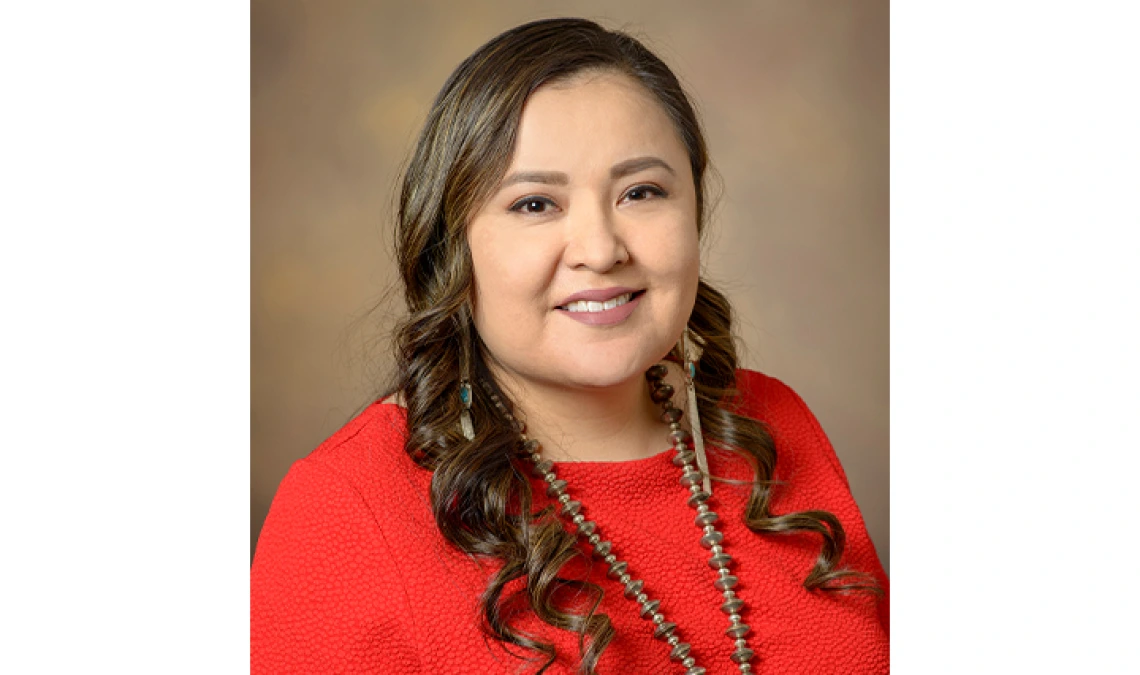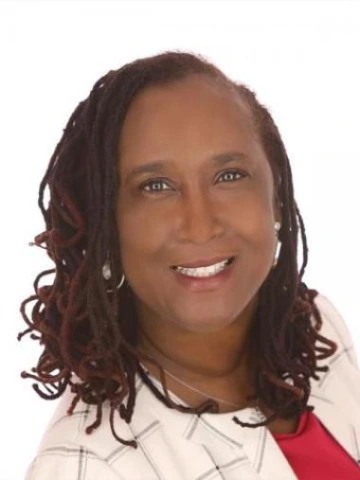Dr. Yellowhair Named Director of Outreach and Tribal Relations
A native of Kayenta, Ariz., a small community on the Navajo reservation, Dr. Monica Yellowhair seeks to build sustainable partnerships between the UArizona Cancer Center and local communities to achieve health equity and a cancer-free Arizona.

Monica Yellowhair, PhD, has been named the director of outreach and tribal relations for the University of Arizona Cancer Center’s Community Outreach and Engagement program.
Dr. Yellowhair, a native of Kayenta, Ariz., a small community on the Navajo reservation in northern Arizona, holds a bachelor's degree in microbiology and a master’s degree in chemistry from Northern Arizona University, and received a doctorate in pharmacology and toxicology from the UArizona in 2011. She then conducted post-doctoral research at the UArizona Cancer Center through 2016, before assuming her most recent position as an assistant research scientist for the Cancer Center.
hatcher.jpg

“Monica brings an ideal set of skills and experiences to our director of outreach and tribal relations position,” said Jennifer Hatcher, PhD, professor at the Mel and Enid Zuckerman College of Public Health and associate director for community outreach and engagement at the Cancer Center. “In addition to her passion for people, she has a strong background in the basic sciences, so she has a fundamental understanding of the research being conducted by the Cancer Center. At the same time, she is from one of the underrepresented communities within our catchment area, so she has a unique ability to understand the culture and foster bi-directional communication between the Cancer Center and the communities we serve.”
The Community Outreach and Engagement program serves as a bridge between the Cancer Center and communities in Arizona to ensure excellence in multidisciplinary, culturally-relevant research, cancer prevention and treatment through advocacy and communication. Dr. Yellowhair will lead the development and execution of strategies to build sustainable partnerships between the Cancer Center and the communities.
As an assistant research scientist, Dr. Yellowhair investigated the gut microbiome, specifically how diet, physical activity, lifestyle and environmental factors may increase colon cancer risks. She has also focused efforts to increase colorectal cancer screening rates in the state’s American Indian and Alaska Native populations. Additionally, she worked with the Native American engagement team for the All of Us research program, seeking to build relationships with tribal communities to bring awareness and education to precision medicine options.
“Based on my experiences and where I am from, I understand that there are barriers for many Arizona communities, especially those in rural areas, to receive any meaningful cancer education, prevention, and screening,” Dr. Yellowhair said. “I think our office can work to alleviate some of those barriers to increase health equity in those communities. Cancer education and prevention are both very important, but it is equally important that we begin by engaging each community to understand their specific barriers and what will help them the most.”
Dr. Yellowhair initially discovered interest in cancer research as an undergraduate student at NAU. There, she began studying the chemical effects of uranium and its related impacts to mining on the Navajo Nation. The research became one of the foundational projects to establish the Partnership for Native American Cancer Prevention (NACP), a collaboration between NAU and the Cancer Center. Funded by the National Cancer Institute, NACP aims to alleviate the unequal burden of cancer among Native Americans of the Southwest through research, training, and community outreach programs in collaboration with the communities it serves.
“I see everything as connected,” Dr. Yellowhair said. “We have a great team here with Community Outreach and Engagement that can collaborate and assist programs like NACP, which has a really strong research, training, and education program. We know that Arizona is a very diverse state, and we want to do everything we can to bring our communities to the table to achieve health equity and a cancer-free Arizona.”



